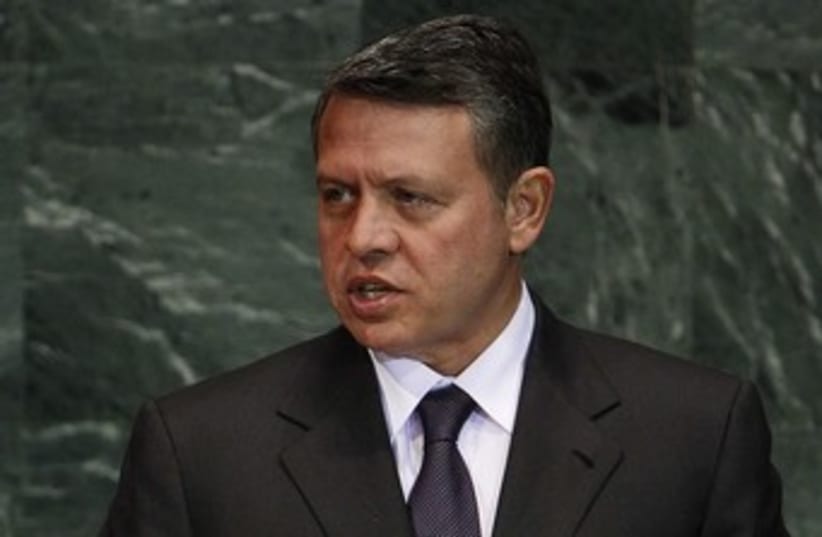AMMAN -- Jordan's once boomingreal estate sector is struggling under political and economic uncertaintywhile, citing the crisis in neighboring Syria, investors and bankers arepredicting difficult times.
Figures released by Jordan’sDepartment of Statistics in early September showed that real estate tradevolume dropped by 25 percent during the first eight months of 2012. Trading inproperty fell to $4.9 billion, down from $6.1 billion during the same period of2011.
With Syria’scivil war showing no signs of abating, investors are playing “wait-and-see”amid widespread public concern that the spillover from Syria will beviolent and taxing to the kingdom. Sameer Abu Ghalyoun, a member of the Jordan Societyfor Real Estate Investors said the drums of war beating in Syria are echoing in Jordan, spreading panic amongresidents and investors alike.
"People are no longercertain about what the future holds,” Abu Ghalyoun told The Media Line. Hesaid, “They fear a major outbreak of violence due to the close connection with Syria," and predicted that the situationwill continue unchanged as long as the unrest in Syria remains unresolved.
The past decade has been good forthe industry, the real estate sector’s steady growth attributed to thekingdom’s political stability in a region teeming with unrest. Following theAmerican invasion of Iraq,scores of wealthy Iraqis arrived in Jordan, driving up the price ofland and fueling a major real estate boom. Traders say the Iraqi war drove up apartment prices three times over thepast decade, and were hoping the unrest in Syria would cause the same scenarioto play out. But not anymore.
“Iraq's scenario was different. Itis far from Jordan and therewas no direct security impact as is the case with Syria,” said Abdul Rahman Saudi, aprominent real estate investor.
Investors from the Gulf States, who havebeen injecting hundreds of millions of dollars into local real estate projects,have now been looking elsewhere in order to escape from shadows of uncertainty beingcast over the Jordanian real estate market by the Syrian instability and thethreat to its neighbors. “Real estate boomed in past years following thearrival of investors from Qatar,Kuwait, Dubai and other countries, but not anymore,”Saudi told the Media Line.
Additionally, the global economiccrisis worsened position of local investors who struggle with banks reluctantto grant them loans, investors say. The Central Bank last year improvisedmeasures to spur growth in the real estate sector through tax exemptions onsmall-sized properties. The move helped to boost demand for a good part of lastyear, said investors, but the difficult economic situation, lack of foreigninvestment and increasing poverty has impacted on the purchase power ofJordanians.
A senior banker at the Arab Bank,Jordan'slargest commercial banking institution, said the combination of a difficulteconomic situation and the political uncertainties are causing banks toworry. The banker, who could not benamed because he is not authorized to speak to the media, explained that, “Banksfeel they are running a high risk by giving loans to a sector that looks tosuffer in the short term. But many banks find themselves forced to do business basedupon the hope of improvement in the midterm.”
Despite the drop in the volume oftrading, the Jordanian government generated more cash this year than last afterimposing higher taxation on real estate trading; giving incentives to non-taxpayers; and reducing tax exemptions by 20 percent. The government said itgenerated nearly $282 million in tax revenue, compared with $200.4 million duringthe previous year.
Historically, governments have oftenresorted to wiping out taxation worth millions in order to buy the allegianceof influential figures and tribal leaders, a policy that has been condemned bythe opposition as a form of corruption.Meanwhile, the real estate sectoris facing a temporary halt in its activities due to strike by workers at theDepartment of Land and Survey (DLS). Nearly 1,500 employees of 34 governmentoffices have are striking for improved pay while the government responds thatit has no funds to meet the demands. It claims to have lost more than $141million during a single week of striking, but expresses optimism that it willregain the lost funding when the strike ends.The drop in real estate tradingalso comes despite an influx of Libyan investors who fled to Jordan towait-out a return to stability following the revolution that saw the removal ofstrongman Muamar Gaddafi. Yet, foreign investment remains a bright spot inthe realm of real estate. The Libyans, along with Arab-Americans and Jordanianexpatriates living in the Gulf Statesform the basis for the foreign investmentFor more stories from The Media Line go to www.themedialine.org
